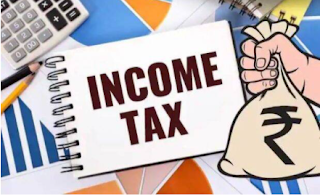In today's economy, personal loans have become a common financial instrument used to fulfill various personal and professional aspirations. People opt for personal loans to fulfill their varied requirements like medical expenses, education funding, wedding expenses, home renovation costs, etc.
However, personal loans not only help you fulfill your financial aspirations but also help you get certain tax benefits. With the right approach and planning, you can save a lot of money on tax payments. If you are earning more than 7 lakhs per annum and want to pay zero tax, here is how you can go about it.
Understand Taxation Policies
The first step towards saving taxes is to understand taxation policies. In India, the income tax department levies taxes on annual income above a certain limit. The limit for taxpayers under the age of 60 years is Rs. 2.5 lakhs, while it is Rs. 3 lakhs for senior citizens aged between 60 and 80 years.
To pay zero income tax on 7 lakhs salary, you need to know about the tax slabs. For the financial year 2021-22, the tax slab for individuals earning between 7.5 lakhs to 10 lakhs is 15%, while the slab for those earning between 10 lakhs to 12.5 lakhs is 20%. The tax applicable beyond these limits is higher.
Use Personal Loans to Save Taxes
One of the most effective ways to save taxes on your salary above 7 lakhs is to use personal loans. The reason why your personal loan can help you save taxes is that a personal loan is not considered as income. This means you don't have to pay any tax on the amount you receive as a personal loan.
Since personal loans don't attract taxes, it is wise to use them for your various expenses like paying off credit card debt, home renovation, car down payment, etc. This is because if you use your income to pay for these expenses, you will have to pay taxes on your income, which will increase your tax liabilities.
There is another way personal loans can save taxes, which is by taking a personal loan for investing in tax-saving instruments. When you invest in tax-saving instruments, you get a deduction under Section 80C of the Income Tax Act, which reduces your tax liabilities.
For instance, if you take a personal loan to invest in a Public Provident Fund (PPF) account, you can claim a tax deduction of up to Rs. 1.5 lakhs under Section 80C. This means that if your taxable salary is 9 lakhs, and you invest 1.5 lakhs in a PPF account, your taxable income will be 7.5 lakhs, and you won't have to pay any tax on your salary.
Invest in Tax-Saving Instruments
As mentioned earlier, investing in tax-saving instruments is an effective way to save taxes. Tax-saving instruments help you save taxes by reducing your taxable income. Under Section 80C, there are various tax-saving instruments like Equity-Linked Savings Scheme (ELSS), National Savings Certificate (NSC), Public Provident Fund (PPF), Tax-Saving Fixed Deposits (FD), and so on.
To save taxes through tax-saving instruments, you need to plan your investments in advance. You need to choose the right type of tax-saving instrument based on your financial goals, risk profile, and investment horizon. For example, if you have a long-term investment horizon and are comfortable with market volatility, you can invest in ELSS funds. On the other hand, if you want a safe investment with fixed returns, you can invest in Tax-Saving Fixed Deposits.
Claim Tax Deductions
Another way to decrease your tax liabilities is by claiming tax deductions. Tax deductions are specific allowances under the Income Tax Act that allow you to reduce your taxable income. There are several tax deductions available under various Sections of the Income Tax Act.
One such tax deduction is under Section 24B, where you can claim a deduction on the interest paid on your home loan. If you have taken a home loan, you can claim a deduction of up to Rs. 2 lakhs on the interest paid on the home loan in a financial year.
Similarly, under Section 80D, you can claim a deduction for the premium paid for your health insurance. This deduction is available for a maximum of Rs. 25,000 per annum for individuals aged below 60 years and a maximum of Rs. 50,000 for senior citizens.
Plan Your Investment
The key to saving taxes is by planning your investments in advance. By planning your investments, you can optimize your tax savings and reduce your tax liabilities. You can use various tools like tax calculators, financial planners, etc. to plan your investments efficiently.
When planning your investments, you should also keep in mind the risks associated with the investment instruments. The investments you make should align with your goals, risk appetite, and investment horizon.
In conclusion, with the right approach and planning, you can save a lot of money on your tax payments. Personal loans are an effective way to save taxes, both by reducing your taxable income and by investing in tax-saving instruments. To pay zero tax on your salary above 7 lakhs, you need to plan your investments in advance, choose the right type of tax-saving instruments, and claim tax deductions effectively. By doing so, you can enjoy a comfortable financial life without worrying much about the tax liabilities.











No comments:
Post a Comment